Times that TV did Black history justice
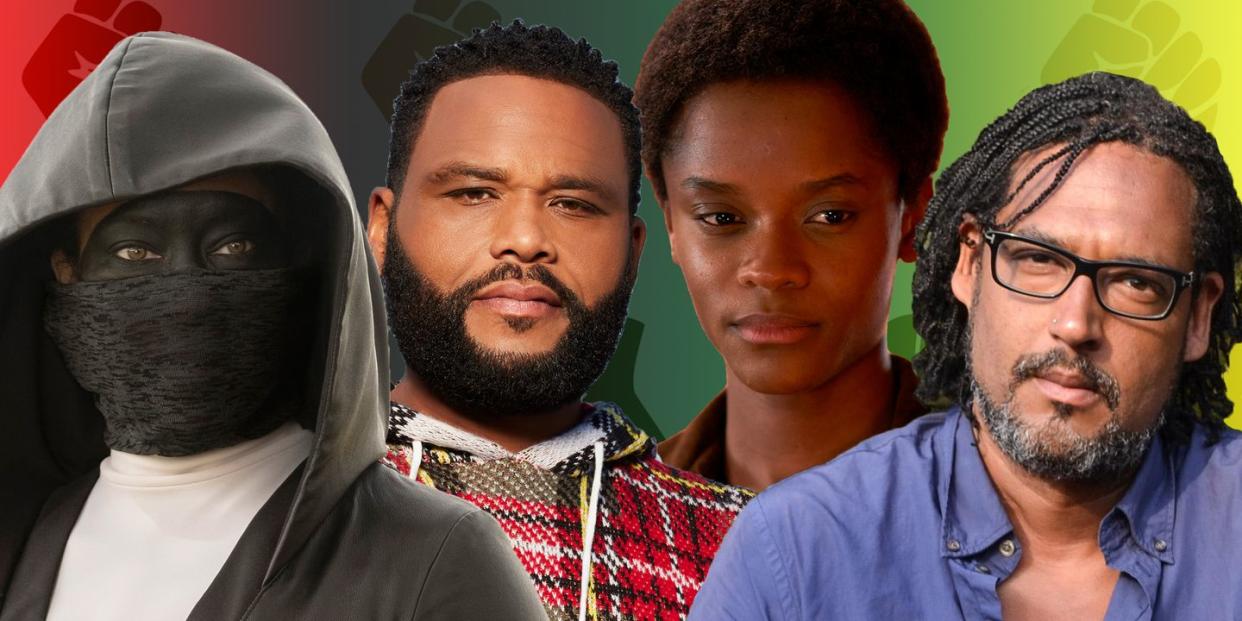
- Oops!Something went wrong.Please try again later.
Under the scrutiny of global protest, the infrequent portrayal of Black history on television has been shown up for being what it is: largely false, laughable and, unsurprisingly, racist.
But occasionally TV has managed to get it right by educating us, reminding us, and putting a new spin on the things we thought we knew.
Although predominantly American (which says a lot about British television), we've picked out some of the most insightful, thought-provoking, and innovative programmes, past and present, to have tackled the topic of Black history.
Roots
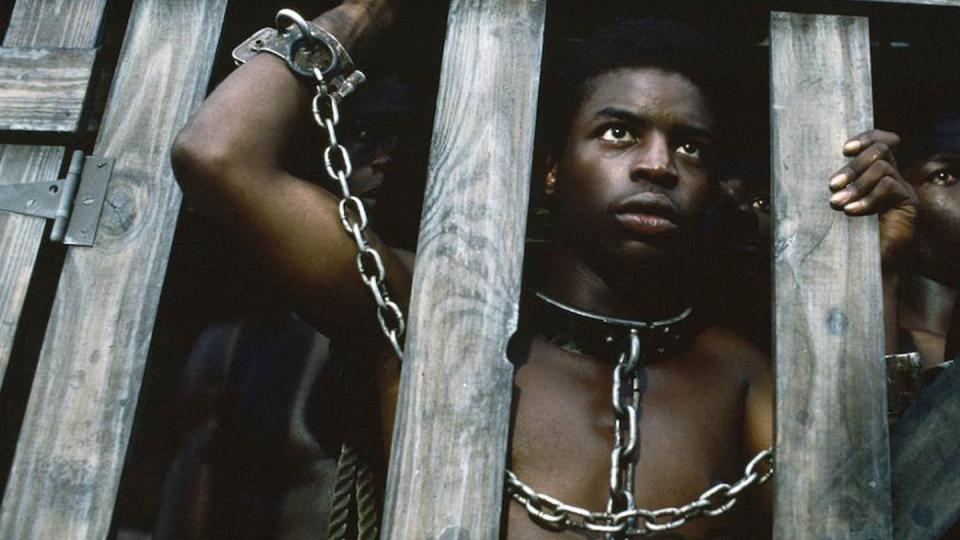
Based on 1976's best-selling book by Alex Haley, few Black people knew what to expect from the drama version. Aired in 1977, depictions of slavery had been limited to Gone with the Wind-style scenarios and one-dimensional Black characters until that point.
To give it its full title, Roots: The Saga of an American Family rectified this by humanising slaves (and their descendants) throughout the ups, and considerable downs, of their family lives. We watched as children were born and taken away, as characters married and died, and as they were beaten so brutally that it still has the power to shock to this day.
Depicting slaves as more than just the comedy foils of well-meaning slave owners, Roots forced millions of viewers, in America and beyond, to confront a Black history that had long been sugar-coated.
Available on Amazon Prime Video.
Watchmen
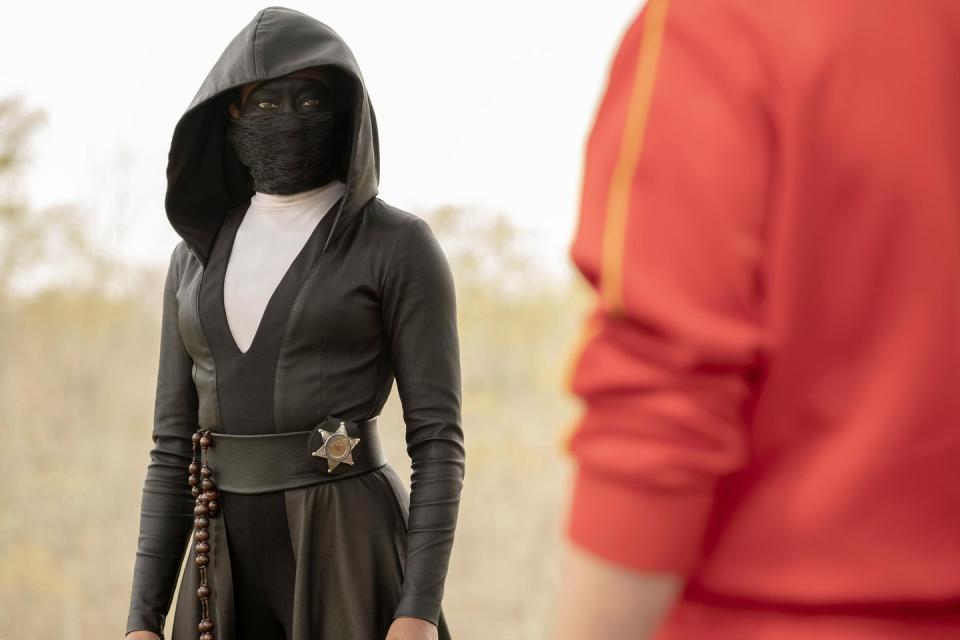
Told through the prism of science fiction and comic-book fantasy, HBO's series Watchmen shone a light on the harrowing real-life story of the Tulsa massacre. In 1921, an angry white mob descended on the prosperous area of Greenwood to loot, burn and bomb their way through an area which had become known as the 'Black Wall Street'.
Although hundreds were thought to have been killed, nearly 1,500 businesses burned down and 10,000 left homeless, the massacre was pretty much left out of history books until the 1990s. Time travel can often get a bit misty-eyed about the past but in the hands of Sister Night (Regina King), Watchmen managed to give the whole historic episode the kind of grim reality it deserves.
Black-ish: 'Black History Month'
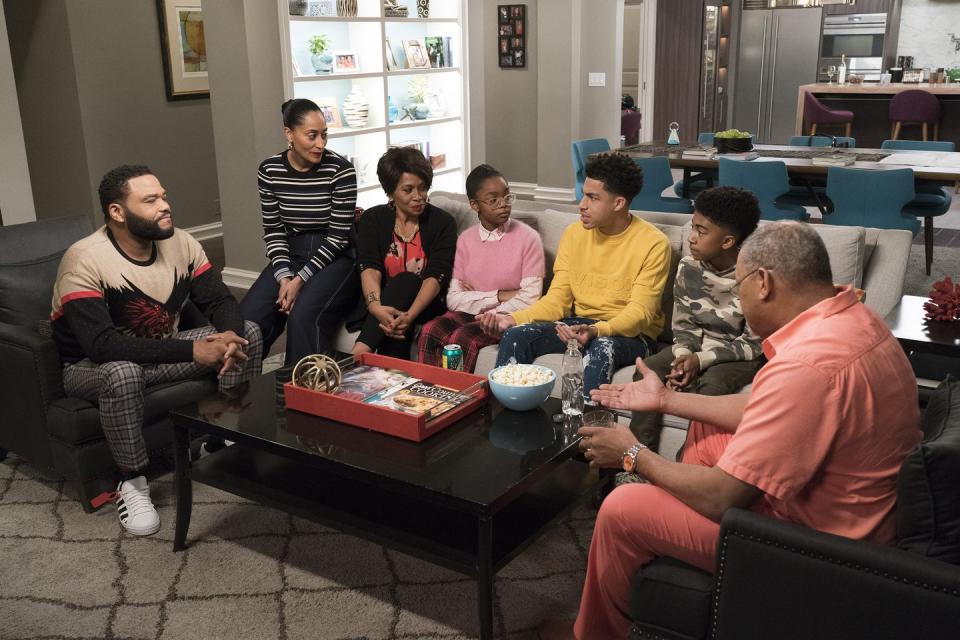
As you'd expect from a show called Black-ish, this everyday sitcom about Black family life has never shied away from the tricky topic of race. From Juneteenth to Colin Kaepernick's NFL protest, it's always managed to serve up difficult conversations with enough humour and truth to make it authentic, and the episode on Black History Month is no exception.
Annoyed at the sub-standard approach that his children's school take to Black History Month, dad Dre takes matters into his own hands by giving a talk himself. While white history is celebrated all year round, Black history gets a month-long window before being hidden away for another year.
"There are so many people to talk about and 28 days isn't long enough to contain their influence and greatness," says Dre. Hitting the nail on the head every time, he ends his speech with a list of all the greats, including some of the most influential Black Americans you've never heard of.
Season five is available on Amazon Prime Video.
The Murder of Stephen Lawrence
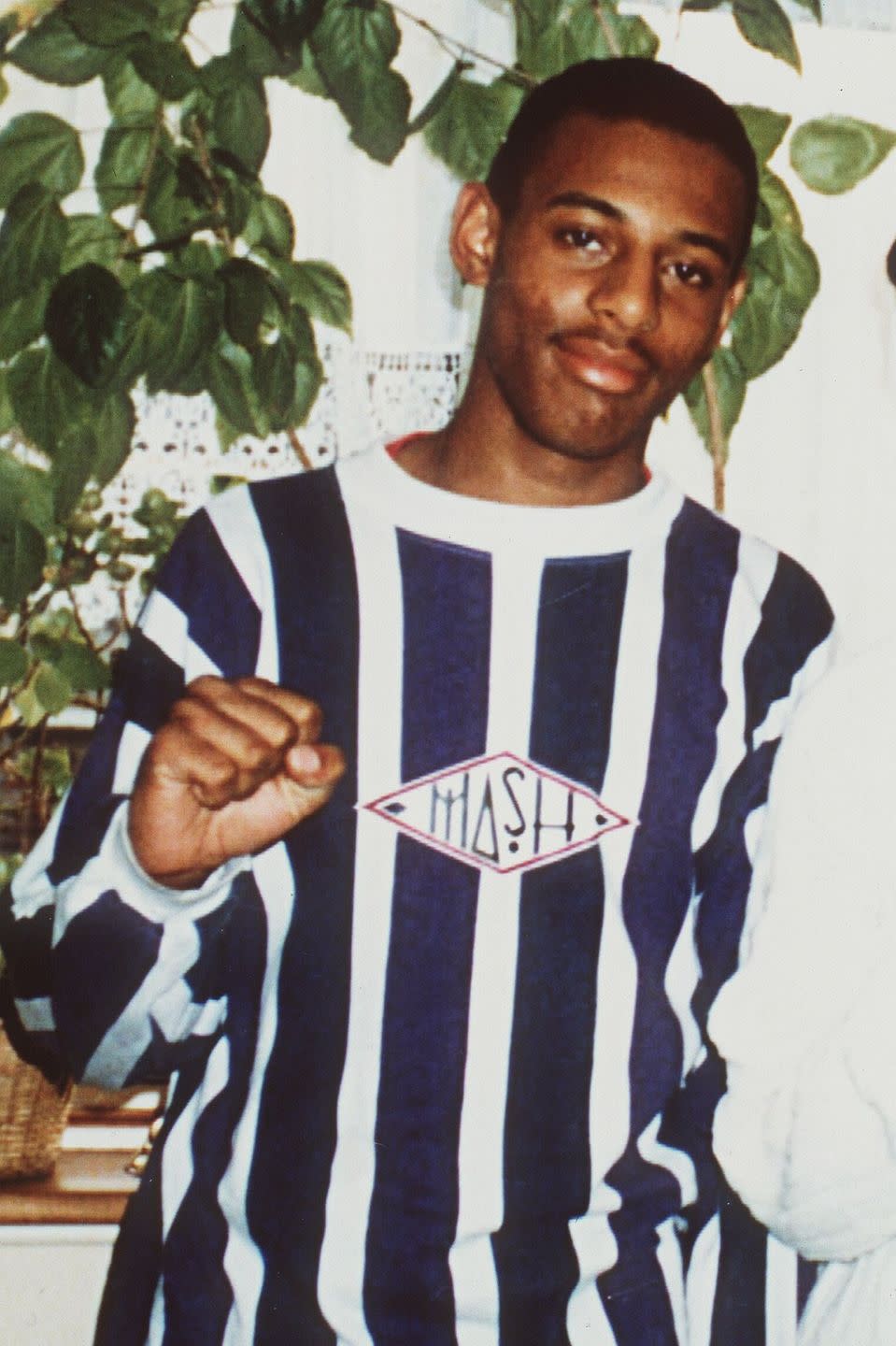
Racially-motivated murders were severely under-reported on TV before the death of Stephen Lawrence, which explains why few have ever heard of Kelso Cochrane, the 32-year-old Black man who was murdered by racists in 1959.
Given the history of such cultural oversights, it made the 1999 drama The Murder of Stephen Lawrence, even more important. Despite being 40 years after Cochrane, it was some recognition that such crimes were not just a figment of the Black imagination. Starring Marianne Jean Baptiste and Hugh Quarshie as Doreen and Neville Lawrence (Quarshie reprised his role in 2021's Stephen), it dramatised the facts of Stephen's death: from the fatal wounding at the bus stop to their relentless campaigning in the face of police mishandling of the case and consequent injustice.
Capturing the private pain of a family's loss is bordering on impossible, but this managed to do so while still retaining a focus on the wider issue of racism.
The Murder of Stephen Lawrence is sadly not available to stream at the moment.
Black and British: A Forgotten History
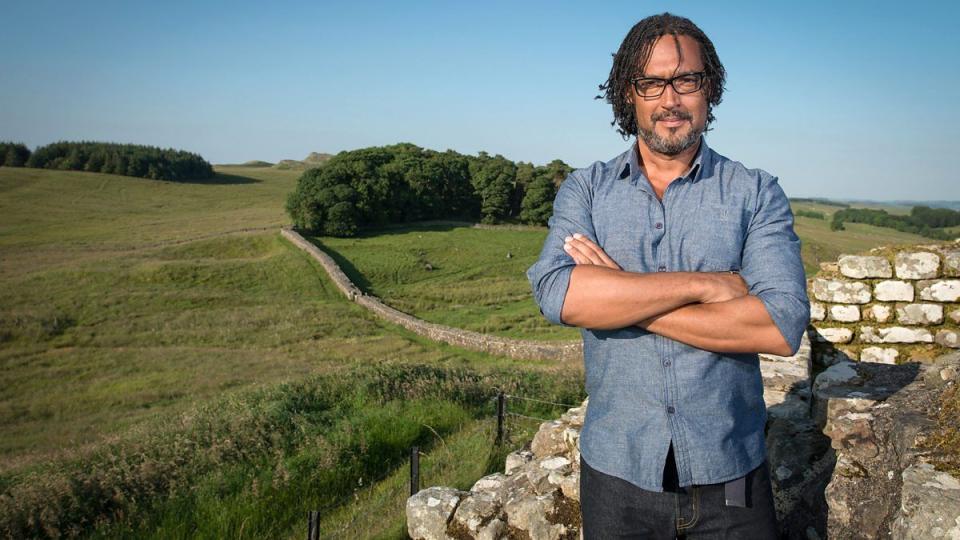
To paraphrase a recent comment on Twitter, Black history taught in British schools largely boils down to 'slavery... Martin Luther King... the end'.
The point being that Black history has failed, until very recently, to exist outside the US. But in 2016, historian David Olusoga got the ball rolling with a documentary detailing the presence of Black people in Britain.
Starting well before the Windrush, Olusoga goes way back to Roman Britain, a time rarely related to a Black presence, to enlighten viewers about all the things they didn't know, and reset all the things they thought they were sure of. Over the course of four episodes, he manages to weave Africa, America and Jamaica into the history of Britain in a way that should be the norm rather than an exception.
Black and British: A Forgotten History is on BBC iPlayer
Black Hollywood
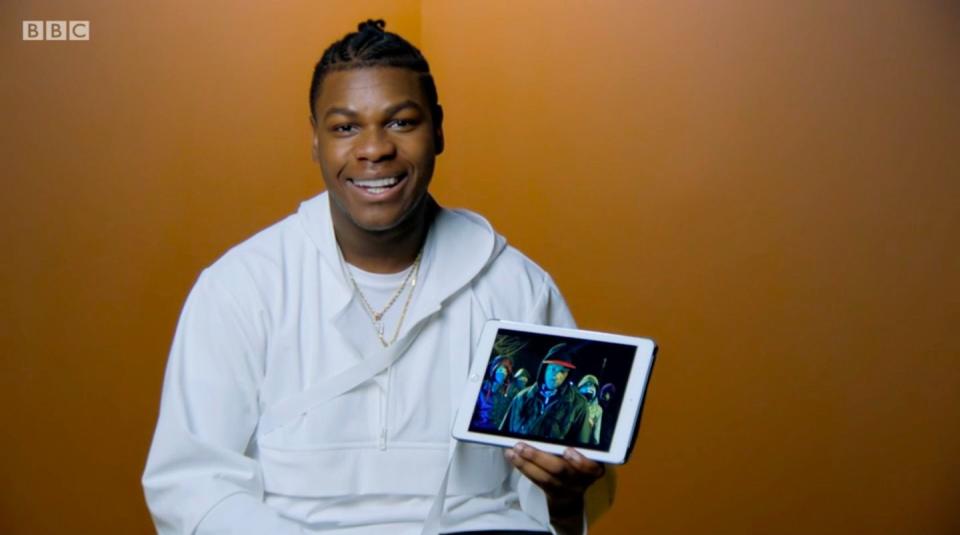
This three-part series on the history of Black Hollywood is a treat for anyone remotely interested in Black actors other than Hattie McDaniel. Brilliant as she was, this focuses on the battles faced, and in some cases won, by Black actors, writers and film directors since the 1950s.
Starting with such legends as Harry Belafonte, Diahann Carroll, Dorothy Dandridge and Sidney Poitier, it ends with modern day cinema. Throughout, it manages to pose and answer some of the questions Hollywood has chosen to avoid for the past 100 years by featuring the likes of Spike Lee, Cuba Gooding Jr and John Boyega.
Black Hollywood explores why interracial relationships on screen were, and continue to be, a thorny subject, how Black women's stories have often been sidelined, and why Black British actors are now conquering Hollywood.
Black Hollywood is on BBC iPlayer.
Eyes on the Prize
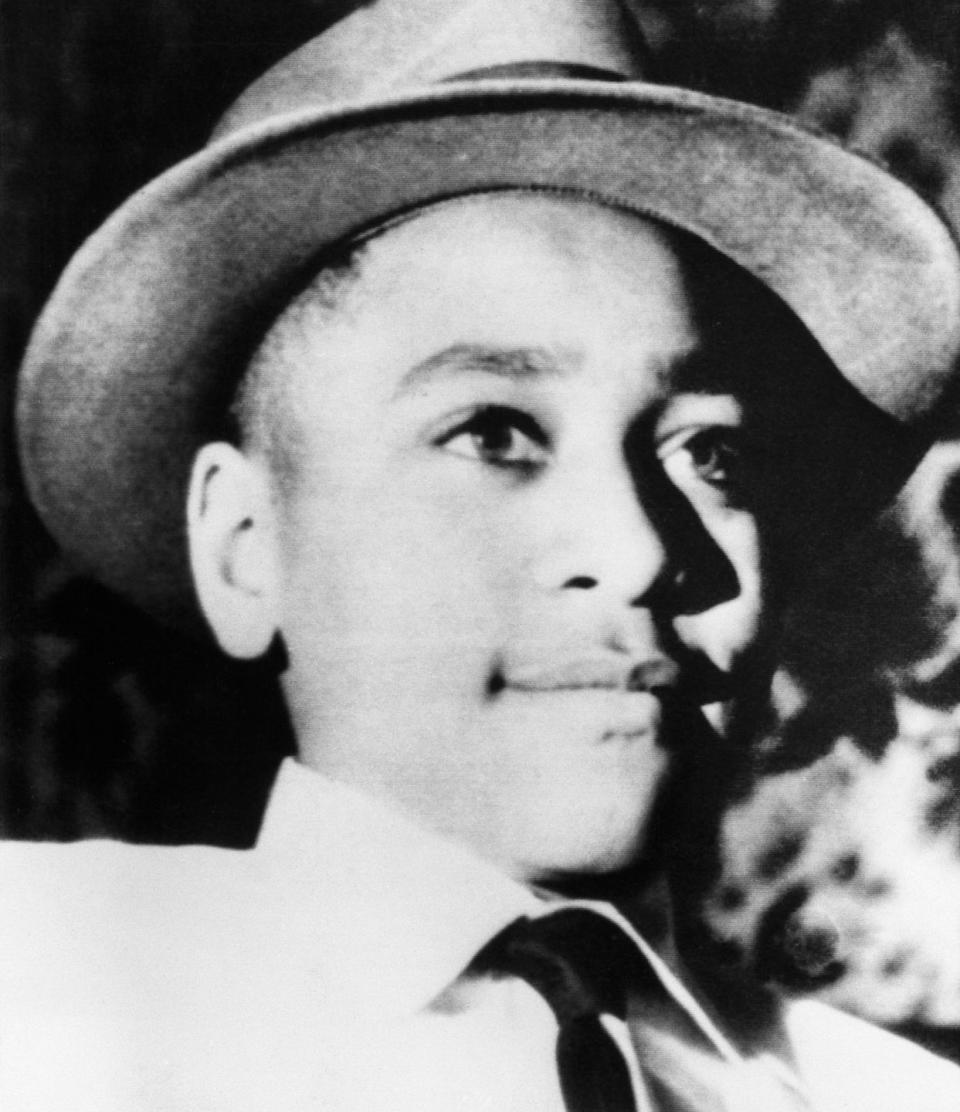
There are documentaries, and then there are documentaries – the kind that are worth watching more than once.
First aired in 1987, PBS's Emmy award-winning series, Eyes on the Prize is so well done that every last hour of it should be included in the national curriculum. Told over 14 episodes, the series starts with Emmett Till, the 14-year-old murdered for allegedly 'getting fresh' with a white woman in 1955, and ends in the mid-'80s.
Much of the brilliance of this series lies in its dedication to exploring this aspect of American history in such detail. We don't just get Till's photo and a quick biography, his story is told using rare footage of his uncle, Mose Wright, talking about the night white men turned up at his door to drag his nephew away. Martin Luther King Jr isn't just reduced to having a dream and the shift from a religious movement to a more political one goes beyond Malcolm X. This is possibly the only documentary you'll ever need to see on the subject.
Available on YouTube.
Horrible Histories: Black History Month
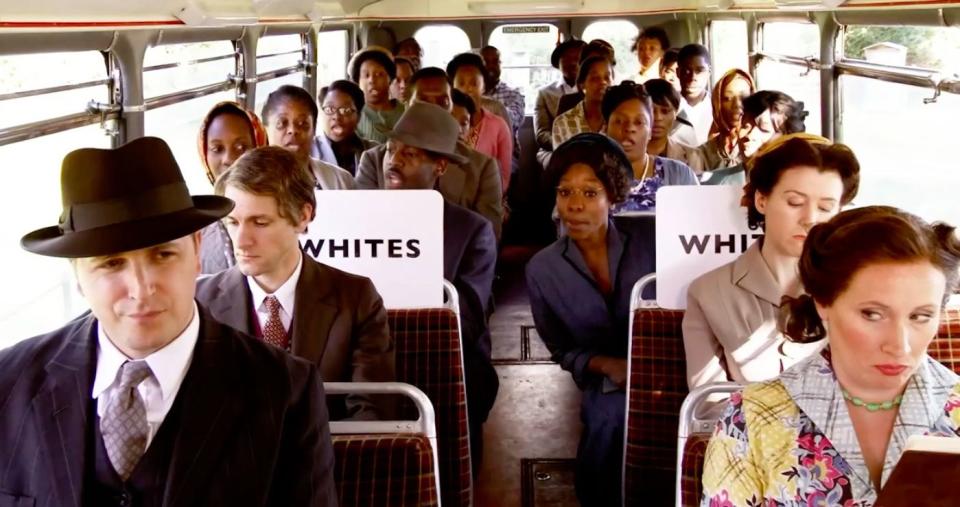
With its witty scripts and catchy tunes, Horrible Histories has been managing to make children learn the basics for years. By putting the facts to weirdly familiar tunes, a whole generation of kids now associate Charles II with Eminem's 'My Name Is'.
But in this Black History Month special, Strictly Come Dancing's Oti Mabuse picks out some of the key Black figures featured in the series. Rosa Parks' refusal to give up her seat is given the song-and-dance treatment, and Martin Luther King Jr covers his achievements in the style of David Bowie's 'Heroes'. It also introduces children to Mary Seacole, Jimi Hendrix and Bill Richmond, the former slave whose boxing skills made him a household name in the court of George IV in 1821. In a world where Black history is often ignored, Horrible Histories provides a start.
Horrible Histories: Black History Month is not available to stream at the moment
The Golden Palace: 'Camp Town Races Aren't Nearly as Much Fun as They Used to Be'
It's fair to say that few have looked to The Golden Girls for witty commentary on racial politics. In one recently removed episode, Blanche and Rose spend the entire show in mud masks, much to the 'hilarious' bemusement of their Black guests.
But in one edition of spin-off show The Golden Palace, recent debates about the confederate flag and what it means are preempted by 28 years. Originally aired in 1992, Don Cheadle stars as hotel manager Roland, who is outraged when Blanche arranges a 'Daughters of the Traditional South' event, and even more so by the confederate flag she insists on hanging up. For Blanche, the flag equals "wonderful family memories", but for Robin, it represents little more than a KKK calling card.
Surprisingly on point, this racial debate about the confederate flag may have been the first time it was expressed on such a mainstream, white TV programme.
Available on YouTube.
LA 92
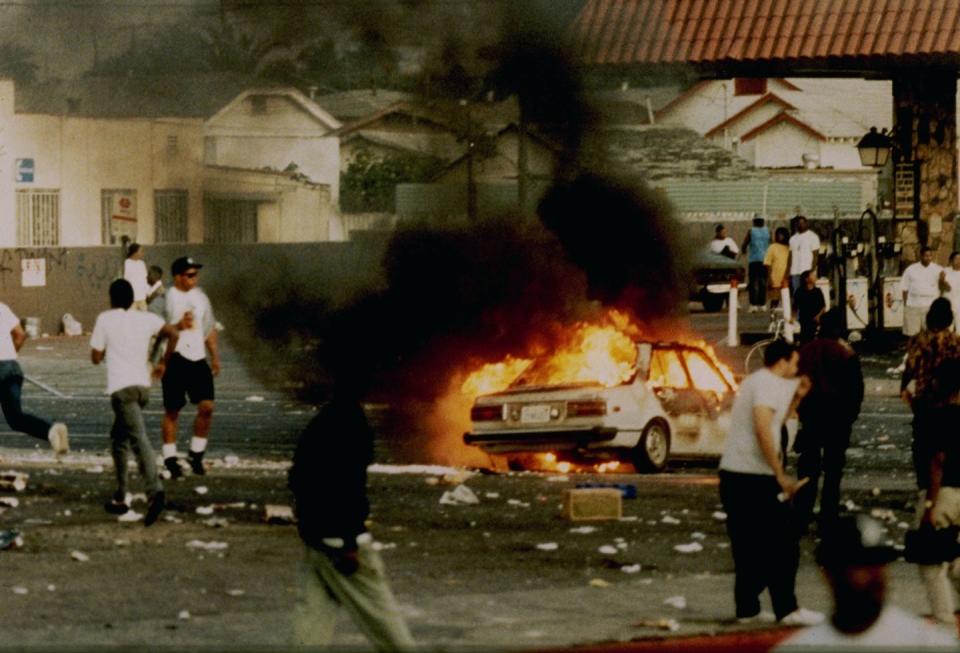
These days, any police officer's brutal, sometimes fatal, actions are more likely to be caught on camera phones, but LA 92 takes us back to a time when things were different.
On March 3, 1991, Rodney King found himself fleeing from police who suspected him of driving under the influence. What happened to King when the police caught up with him could have gone undocumented had it not been for George Holliday, a nearby resident who just happened to be on his balcony, trying out his new hand-held video camera. Eerily captured on night mode, the footage shows four LAPD officers dragging King from his car and beating him with a baton, 56 times, for a minute.
Made up entirely of archival footage, the film makes the link between the LA riots of 1965 and the LA riots of '92, which followed the acquittal of all four police involved in King's beating. Tight, focused and hard to watch, LA92 adds context to George Floyd's death and 2020's BLM protests.
Available on Disney+.
The Unwanted: The Secret Windrush Files
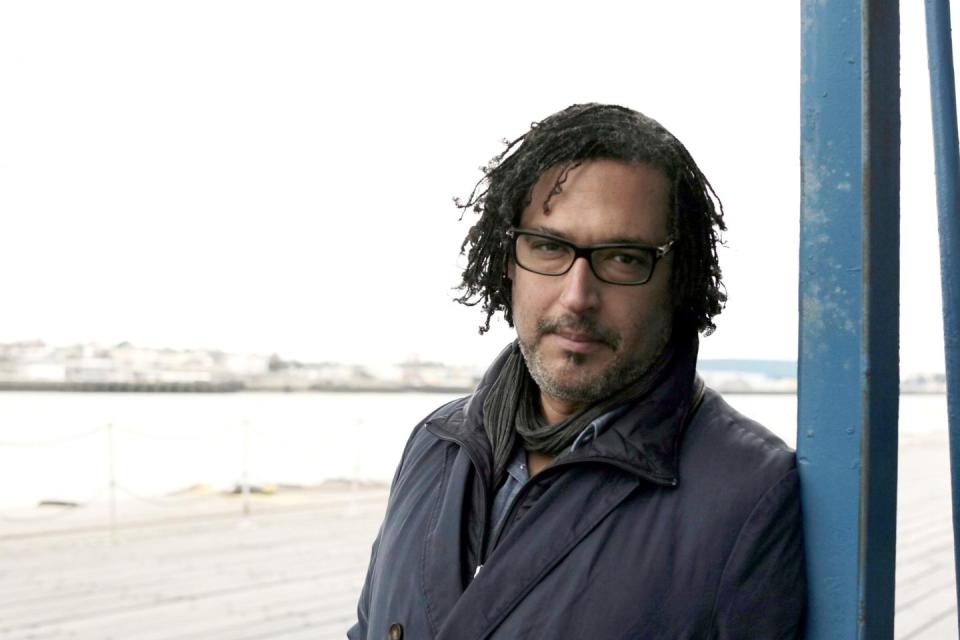
Many people who left the Caribbean in the 1950s had fondly referred to England as the Mother Country before they arrived. Raised on diets of monarchy and Britishness, when the call went out to help post-war Britain, they didn't need to be asked twice.
Fast-forward 50 years and it soon became clear that mother didn't want these particular children after all, and never had. In David Olusoga's in-depth investigation, he looks behind the story of the Windrush scandal and its attempt to return Black Britons to the Caribbean years after their arrival.
In between the personal testimonies of coming to England and making a life, Olusoga exposes the government's involvement, from the panicked correspondence in Whitehall before the Windrush's arrival, to Theresa May's 2012 Hostile Environment policy which kickstarted the scandal.
Most affecting, though, are the voices of the victims themselves. Their shock and sadness at becoming illegal immigrants after half a century is hard to stomach, but it does lend recent British history some much-needed truth.
Unwanted: The Secret Windrush Files is available on BBC iPlayer.
Small Axe
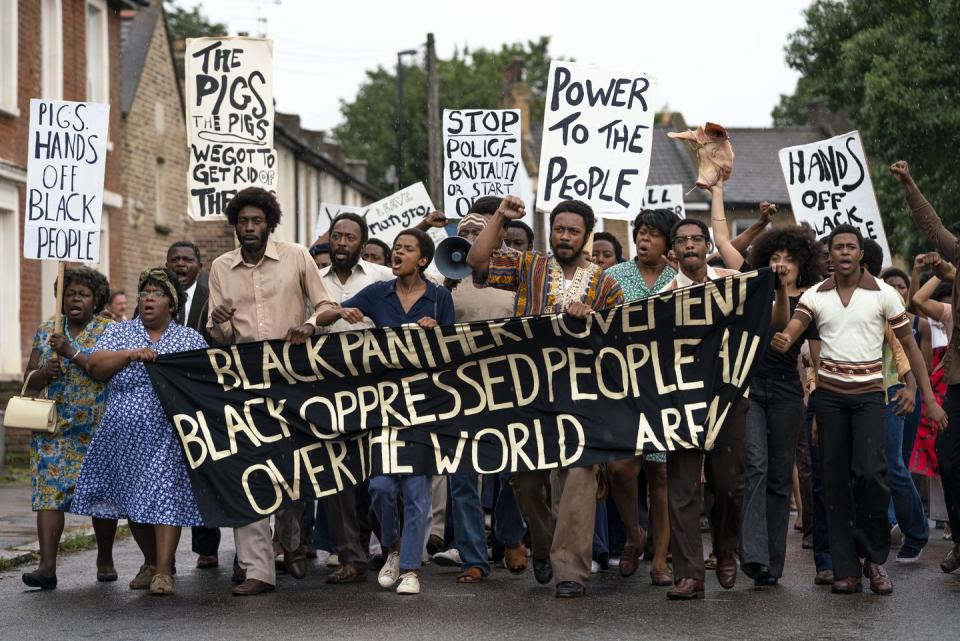
Over the years, some of Notting Hill's darker moments have been buried beneath more palatable visions of dancing policemen and carnival floats, but Steve McQueen's series rubbed some of the sheen off all that.
To mark its 50th anniversary, the 12 Years a Slave director revisited the story of the nine Black activists dubbed the Mangrove Nine, and the events surrounding their arrest and trial for protesting police harassment.
Set between 1969 and 1982, Small Axe's five separate episodes each hover over a relatively small corner of the Black British experience, but shed light on the some of the names who risked their lives to move their cause forward.
Small Axe is available on BBC iPlayer
For more information on how you can support Black Lives Matter in the UK, please visit its Twitter account. Readers can also donate to the UK anti-discrimination group Stand Up To Racism, and the Unite Families & Friends Campaign, which supports those affected by deaths in police, prison and psychiatric custody.
You Might Also Like

